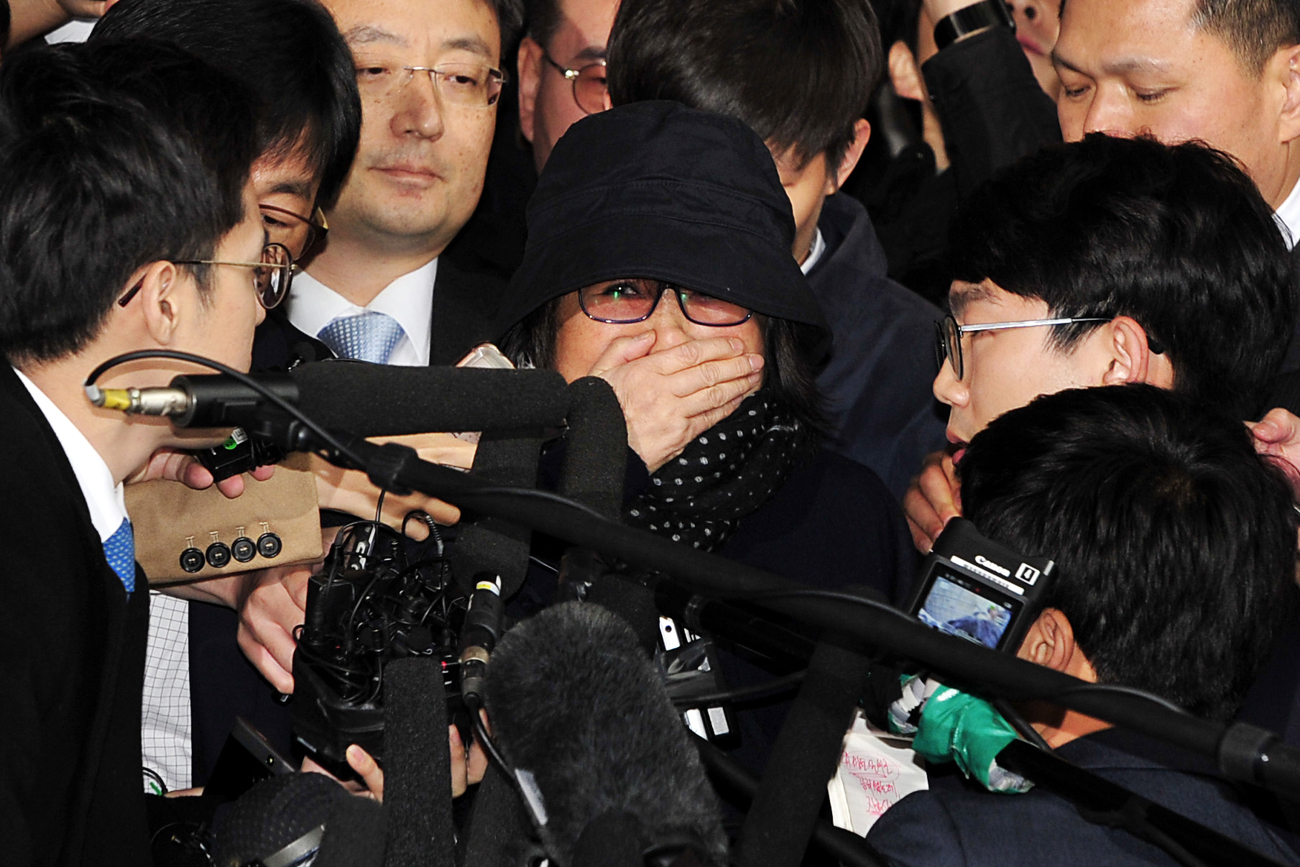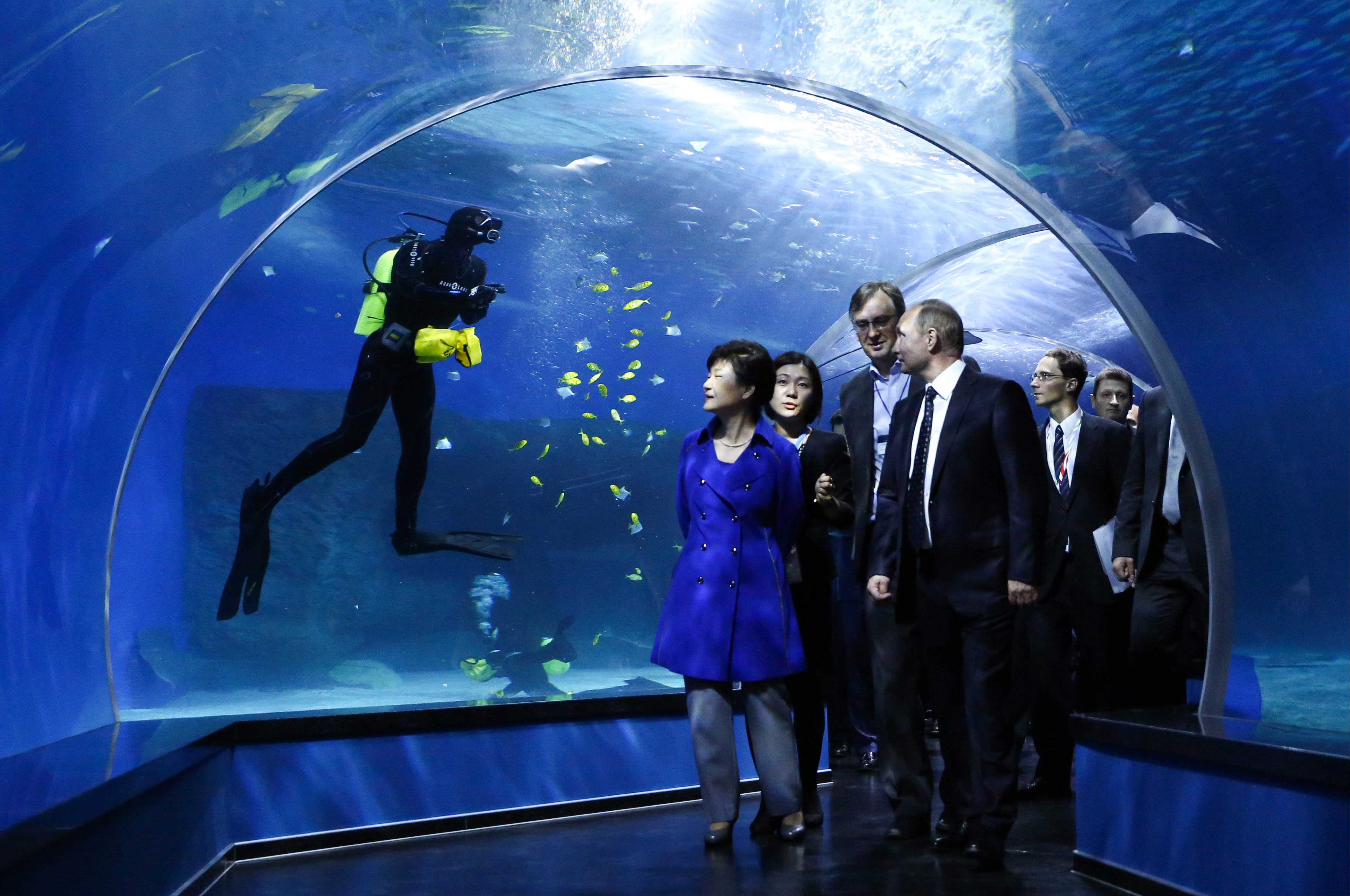‘Female Rasputin’ had no influence on Moscow-Seoul ties - experts

Choi Soon-sil (C), who is alleged of having meddled in state affairs and peddled influence on various state projects by exploiting her friendship with South Korean President Park Geun-hye, as she arrives to the Seoul Central District Prosecution Office for questioning in Seoul.
EPA / Vostock-photoKorea experts in Russia do not believe that Choi Soon-sil, who has been termed the ‘female Rasputin’ by the Korean media, had any influence on President Park Geun-hye's Russia policy.
Choi, who has been a friend of the South Korean President since 1974, has been accused of using her friendship with Park to influence state affairs.
The 60-year-old daughter of a South Korean religious leader, Choi, has no government post, but is alleged to have a ‘Rasputin-like grip’ on the president's trust and affections.
“Investigations will reveal what specific decisions Choi Soon-sil did take part in,” says George Toloraya, Director of Asian strategy Center at the Institute of Economics of the Russian Academy of Sciences. “The Korean press speculates that her influence is visible in the closing of the Kaesong techno park. She may have been behind the decision to deploy the American THAAD missile defense system in Korea.” The THAAD deployment is a highly sensitive issue both for Russia and China.Even if the suspicion that Choi was influencing Park’s foreign policy will be proved, it does not mean that Russia-South Korea relations will improve in her absence, says Andrei Lankov, professor of Korean Studies at Kookmin University.
“Russia-Korea relations are in relatively good shape and are not even close to being in crisis mode,” Lankov says. “But let there be no illusions. It doesn’t matter who the president of South Korea is. The country will always feel comfortable in the U.S.'s orbit.”
North Korea policy
Experts agree that Choi's influence may be blamed for an extremely tough stance that Seoul has taken on North Korea.
“Park's North Korea policy was highly unreasonable, but I would not limit this to Choi's influence,” Lankov says. “Many South Korean right wingers share the same attitude towards North Korea."“It was Seoul's inflexibility, that led to a growing number of provocations from the North Korean side,” Toloraya says.
“In the past two years, Park repeatedly stated that North Korea would inevitably collapse. Experts were in doubt and could not understand where this inside information may have come from. The answer proved to be surprising,” he adds.
“Park's North Korea policy was highly unreasonable, but I would not limit this to Choi's influence,” Lankov says. “Many South Korean right wingers share the same attitude towards North Korea."
According to Lankov, such a policy could have led to a major conflict. “However, I would not exaggerate this risk. Both South and North tend to saber-rattle but don't want a war. They panic over the possibility of a war.”
Domestic squabbles
Konstantin Asmolov, a researcher at the Institute of Far Eastern Studies, says that the scandal around president Park and her long-time friend is huge, but the real reason behind the hype could be internal power politics within the South Korean governing party (the conservative Saenuri Party).
“When sanctions that Seoul imposes on Pyongyang are not working and North Korea is not falling apart, but continues its nuclear program, it becomes clear that this policy leads to nothing, and the South Korean right wing have only one exit strategy: to put the blame on Park and Choi,” Asmolov says.
South Korea is scheduled to have elections in December 2017, but there is growing pressure on Park to resign.
All rights reserved by Rossiyskaya Gazeta.
Subscribe
to our newsletter!
Get the week's best stories straight to your inbox
